Results summary
Source: Clerk of the U.S. House of RepresentativesGains, losses, and holds
Retirements
Two Republicans and one Democrat retired instead of seeking re-election.Defeats
Four Democrats sought re-election but lost in the primary or general election.Change in composition
Before the elections
After the elections
Race summaries
Special elections during the 89th Congress
In these special elections, the winner was seated during 1966 or before January 3, 1967; ordered by election date, then state.Elections leading to the next Congress
In these general elections, the winners were elected for the term beginning January 3, 1967; ordered by state. All of the elections involved the Class 2 seats.Closest races
Nine races had a margin of victory under 10%: There is no tipping point state, as the Arkansas, Georgia, and Louisiana races were all unopposed.Alabama
Incumbent Democrat John Sparkman was easily reelected to a fourth full term. Republican challenger John Grenier received 39% of the vote, the best result that a challenger to Sparkman had ever received to that date, presaging the rise of the Republican party in Alabama after decades of Democratic dominance.Alaska
Incumbent Democrat Bob Bartlett was reelected to his third (a second full) term in a landslide, defeating Republican candidate Lee McKinley in a rematch of the 1960 United States Senate election in Alaska, 1960 election.Arkansas
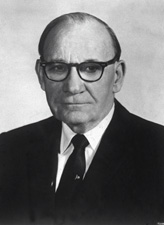 Incumbent Democrat John L. McClellan was reelected unopposed to a fifth term in office.
Incumbent Democrat John L. McClellan was reelected unopposed to a fifth term in office.
Colorado
Republican incumbent Gordon Allott was reelected to a third term, defeating Democratic state senator and future governor Roy Romer.Delaware
Republican incumbent J. Caleb Boggs won reelection to a second term over Democratic candidate James M. Tunnell Jr., whose James M. Tunnell, father had served in the Senate in the 1940s.Georgia
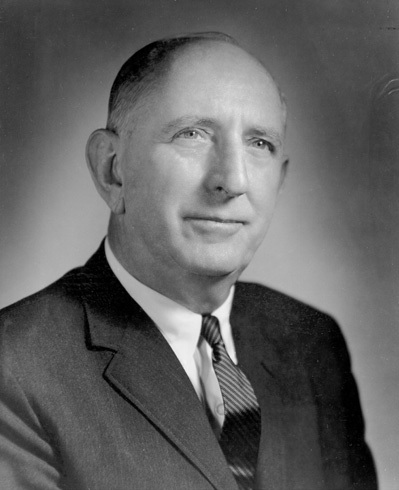 Democratic incumbent Richard Russell Jr. was reelected unopposed to a sixth full term (and seventh overall.)
Democratic incumbent Richard Russell Jr. was reelected unopposed to a sixth full term (and seventh overall.)
Idaho
Republican incumbent Leonard B. Jordan won reelection a full term, having previously served out the unexpired term of the late Henry Dworshak. He defeated Democratic Congressman Ralph R. Harding.Illinois
Incumbent Democrat Paul Douglas, seeking a fourth term in the United States Senate, faced off against Republican Party (United States), Republican Charles H. Percy, a businessman and the 1964 Republican nominee for Governor of Illinois. Also running was Robert Sabonjian (I), Mayor of Waukegan, Illinois, Waukegan. A competitive election ensued, featuring campaign appearances by former Vice-President of the United States, Vice-President Richard M. Nixon on behalf of Percy. Ultimately, Percy ended up defeating Senator Douglas by a fairly wide margin, allowing him to win what would be the first of three terms in the Senate.Iowa
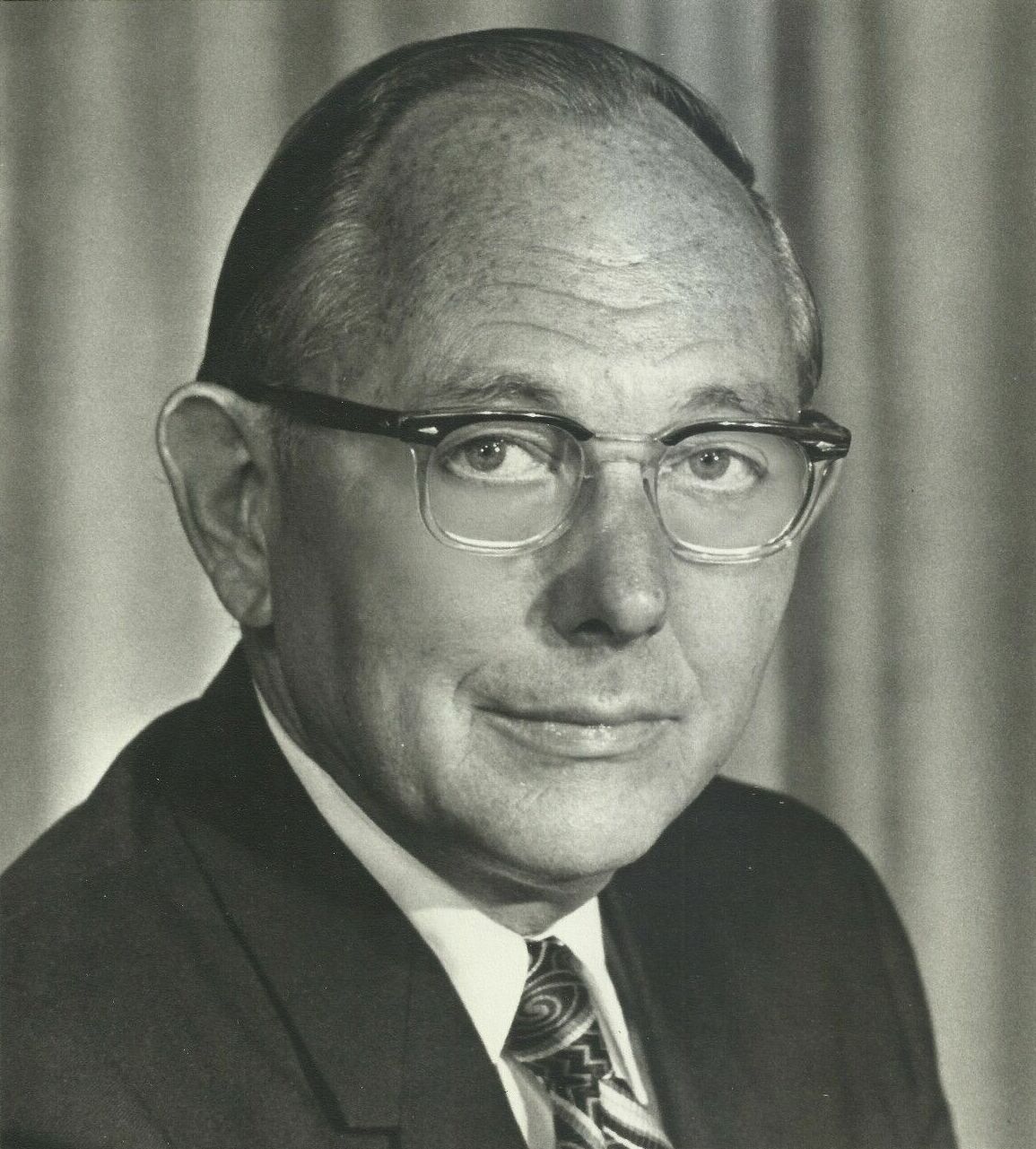 Republican incumbent Jack Miller (politician), Jack Miller was reelected to a second term, defeating Democrat Elbert B. Smith, who had previously run for the state's other Senate seat in 1962 United States Senate elections, 1962.
Republican incumbent Jack Miller (politician), Jack Miller was reelected to a second term, defeating Democrat Elbert B. Smith, who had previously run for the state's other Senate seat in 1962 United States Senate elections, 1962.
Kansas
 Incumbent Republican James B. Pearson won reelection to a full term, having previously served out the unexpired term of Andrew Frank Schoeppel following Schoeppel's death. He defeated Democratic Congressman James Floyd Breeding.
Incumbent Republican James B. Pearson won reelection to a full term, having previously served out the unexpired term of Andrew Frank Schoeppel following Schoeppel's death. He defeated Democratic Congressman James Floyd Breeding.
Kentucky
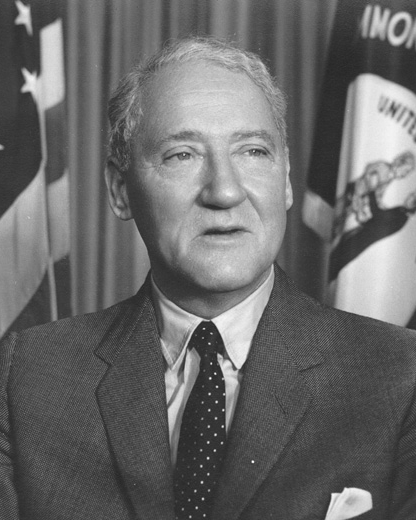 Republican incumbent John Sherman Cooper won reelection over Democrat John Y. Brown Sr., an attorney and former Congressman.
Republican incumbent John Sherman Cooper won reelection over Democrat John Y. Brown Sr., an attorney and former Congressman.
Louisiana
 Incumbent Democrat Allen J. Ellender was elected unopposed to a sixth term.
Incumbent Democrat Allen J. Ellender was elected unopposed to a sixth term.
Maine
Republican incumbent Margaret Chase Smith won reelection to a fourth term over Democrat Elmer H. Violette, a state legislator and future judge of the Maine Supreme Judicial Court.Massachusetts
Republican Party (United States), Republican Massachusetts Attorney General, State Attorney General Edward Brooke defeated his challengers. Republican incumbent, Leverett Saltonstall, was retiring after serving for 22 years. Brooke was the first black U.S. senator elected since Reconstruction Era, Reconstruction.Michigan
 Republican incumbent Robert P. Griffin won reelection to a full term, having initially been appointed to the seat following the death of Patrick V. McNamara six months earlier. He defeated Democratic former Governor G. Mennen Williams.
Republican incumbent Robert P. Griffin won reelection to a full term, having initially been appointed to the seat following the death of Patrick V. McNamara six months earlier. He defeated Democratic former Governor G. Mennen Williams.
Minnesota
Incumbent Democratic U.S. senator Walter Mondale, who had originally been appointed in 1964 to replace Hubert Humphrey after Humphrey was elected Vice President of the United States, defeated Republican challenger Robert A. Forsythe, to win a full term.Mississippi
Incumbent James Eastland, who first entered the Senate in 1941, faced the opposition of Prentiss Walker, the state's first Republican congressman since Reconstruction Era, Reconstruction. Walker, who voted against the Civil Rights Act of 1964, ran on the right of Eastland and solely focused on the white vote, accusing him of not being hard enough in opposing integration and being friendly with President Johnson, accusations to which Eastland partisans opposed the fact Walker nominated a black constituent, Marvell Lang, to the Air force academy, Air Force Academy. He proudly announced he went to a meeting of the Americans for the Preservation of the White Race, a Ku Klux Klan front, enabling Eastland to proudly announce he was opposed by both the Klan and the AFL–CIO, AFL-CIO. Eastland cast the civil rights movement with the tar of Communism and Black Power movement, Black Power and raised the bloody shirt of Reconstruction against the candidacy of Walker. He was supported by segregationists Thomas Pickens Brady, Tom Brady, George Wallace and Leander Perez. Most of the White voters stayed with Eastland, and Walker ironically won African-Americans in southwestern Mississippi who wanted to cast a protest vote against Eastland. Years later, Wirt Yerger, the chairman of the Mississippi Republican Party in the 1960s, said that Walker's decision to relinquish his House seat after one term for the vagaries of a Senate race against Eastland was "very devastating" to the growth of the GOP in Mississippi. Reverend Clifton Whitley also ran for the Mississippi Freedom Democratic Party. A sore-loser law was invoked against Whitley, who ran in the Democratic primary, and he only won one week before the election, thereby preventing to enter any serious campaign or fundraising.Montana
Incumbent United States senator Lee Metcalf, who was first elected to the Senate in 1960 United States Senate election in Montana, 1960, ran for re-election. He won the Democratic Party (United States), Democratic primary uncontested, and moved on to the general election, where he was opposed by Tim Babcock, the Republican Party (United States), Republican nominee and the Governor of Montana. Though the race remained close, Metcalf was able to expand on his 1960 margin of victory, and defeated Babcock to win a second term.Nebraska
The incumbent Republican Carl Curtis was re-elected to a third term, defeating outgoing Democratic Governor Frank B. Morrison.New Hampshire
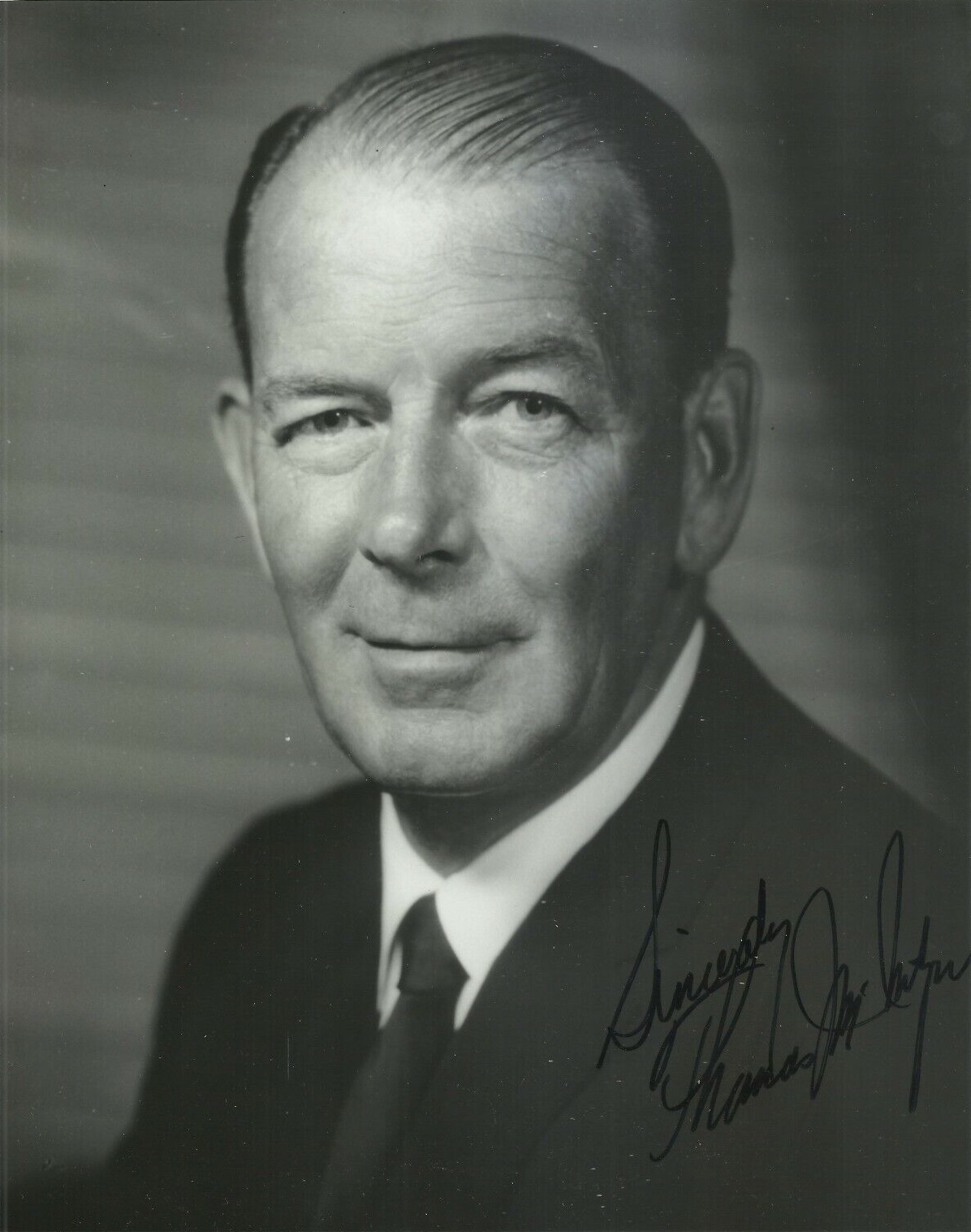 Incumbent Democrat Thomas J. McIntyre was reelected to a full term, having previously won a 1962 United States Senate special election in New Hampshire, 1962 special election to serve out the unexpired term of the late Styles Bridges. He defeated U.S. Air Force General Harrison Thyng.
Incumbent Democrat Thomas J. McIntyre was reelected to a full term, having previously won a 1962 United States Senate special election in New Hampshire, 1962 special election to serve out the unexpired term of the late Styles Bridges. He defeated U.S. Air Force General Harrison Thyng.
New Jersey
Republican incumbent Clifford P. Case was reelected to a third term in a landslide over Democratic Middlesex County, New Jersey, Middlesex County Attorney Warren W. Wilentz.New Mexico
Democratic incumbent Clinton Anderson was reelected to a fourth term over Republican candidate Anderson Carter.North Carolina
 Incumbent Democrat B. Everett Jordan was reelected to a second full term (and third overall), defeating Republican challenger John Shallcross.
Incumbent Democrat B. Everett Jordan was reelected to a second full term (and third overall), defeating Republican challenger John Shallcross.
Oklahoma
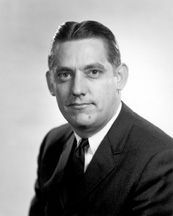 Incumbent Democrat Fred R. Harris was reelected to a full term, having won a special election two years earlier to complete Robert S. Kerr's unexpired term. He defeated Republican candidate Pat Patterson.
Incumbent Democrat Fred R. Harris was reelected to a full term, having won a special election two years earlier to complete Robert S. Kerr's unexpired term. He defeated Republican candidate Pat Patterson.
Oregon
Incumbent Senator Maurine Brown Neuberger did not seek re-election. Held during the escalation of United States involvement of the Vietnam War, the race was between Republican Party (United States), Republican candidate and incumbent Governor of Oregon Mark Hatfield, who opposed the war, and Democratic Party (United States), Democratic congressman Robert B. Duncan, who supported the war. In an unusual move, Oregon's other Senator, Democrat Wayne Morse, who also opposed the war, crossed party lines to endorse Hatfield, who won in a close election, his first of five terms in the United States Senate. In March 1960, first-term U.S. senator Richard L. Neuberger died in office. Despite calls to appoint his widow, Maurine Brown Neuberger, to the position, Governor Mark Hatfield instead appointed Oregon Supreme Court justice Hall S. Lusk to fill the position until a 1960 United States Senate special election in Oregon, November special election. Hatfield stated that he intended to have appointed Neuberger, but that he wanted to appoint someone who would be focused on completing the remaining eight months of the term and not running in the 1960 United States Senate election in Oregon, regular-term Senate election as Neuberger had announced she would. Some observers noted that Hatfield, a Republican, though required by state law to appoint someone of the same political party as the late Senator Neuberger, did not want to give the other party the political advantage of incumbency. Neuberger went on to win the special election over former Oregon governor Elmo Smith, but despite the urging of Oregon congressman Robert B. Duncan, she chose not to run for a second term in 1966, citing health issues, poor relations with Oregon's senior Senator Wayne Morse, and the burden of fundraising. Duncan also urged fellow Oregon congressperson Edith Green to run for the post, but Green also declined. On the seventh anniversary of his inauguration as Oregon's 29th governor, Hatfield announced his candidacy for the Republican nomination. In his announcement, Hatfield focused on the economic achievements in the state since his election, citing record-high employment and the creation of 138,000 jobs. Hatfield was considered vulnerable on the subject of the Vietnam War, which he opposed, in contrast with 75% of Oregonians, who favored the war. Hatfield's views on the war had been strongly affected by his own experiences: as a U.S. Navy ensign in World War II, he had been among the first to walk through the devastation caused by Atomic bombings of Hiroshima and Nagasaki, the atomic bombing of Hiroshima; in a later assignment in Vietnam, he saw first-hand how imperialism led to incredible disparity, with countless Vietnamese living in poverty next to opulent French mansions. The war issue gave Hatfield competition from several minor candidates on the right, but Hatfield nonetheless won by a wide margin, besting his nearest competitor, conservative evangelist Walter Huss, by a nearly 6–1 margin. In March 1966, Duncan announced his candidacy for the Democratic nomination, which was quickly endorsed by Neuberger. In his speech announcing his candidacy, Duncan reiterated his strong support for President Lyndon B. Johnson's escalation of the Vietnam War with its goal of stopping Communist expansion in Asia. Duncan's strong announcement exposed a rift among Oregon Democrats, including Oregon's senior Senator Wayne Morse, a leading anti-war voice, and Duncan's House colleague, Edith Green. Green had urged Duncan to run, but Duncan's hawkish statement troubled her. Soon after Duncan announced his candidacy, Howard Morgan, a former member of the Federal Power Commission, announced he was running as an anti-war option to Duncan. Morgan had the support of Morse and Green (though Green's endorsement did not come until the final week of the campaign), and Duncan had the endorsement of most of the party organization and the major newspapers in the state. When the results were announced, Duncan won by a nearly 2-1 margin in one of the first elections in which the Vietnam War was a central issue. The general election was now set up between two participants whose views on the Vietnam War were in direct opposition to many in their party: Duncan, a pro-war Democrat and Hatfield, an anti-war Republican. With more than three-quarters of Oregonians sharing his view on the war, Duncan used the issue to attack Hatfield, stating that the outcome of the war would determine "whether Americans will die in the buffalo grass of Vietnam or the rye grass of Oregon." Duncan also stressed that his election was necessary to provide a pro-Government voice for Oregon to counteract the anti-war views of Senator Morse. Morse, who had strongly supported Duncan's rival in the primary, now went across party lines and threw his support to Hatfield, though he did not campaign for him. Hatfield, whose popularity as Governor had made him the favorite in the race, soon found his campaign in trouble. Morse's support backfired among many Republicans; Morse had left their party in 1952 to join the Democrats a few years later, and many worried that Hatfield would follow the same path. At a June conference of governors of all 50 states, Hatfield was the lone dissenter on a resolution expressing support for the war, calling the resolution a "blank check" for President Johnson's conduct of the war. By the middle of the summer, fueled by the departure of Republican hawks (such as former Oregon State Treasurer and 1962 Senate candidate Sig Unander who wholeheartedly endorsed Duncan), and with a strong majority of voters in the state already registered as Democrats, Duncan surged to a lead in most polls. While Hatfield did not back away from his war stance, he sought to focus his campaign on other issues, chiefly focusing on the Johnson administration's economic policies that, in Hatfield's view, had created a recession that was creating unemployment in Oregon's timber industry. As the election neared in early fall, Hatfield had pulled even with Duncan with momentum on his side. Hatfield won in 27 of Oregon's 36 counties en route to a solid but narrow 52%-48% victory. In his victory speech, Hatfield maintained that the vote was not a referendum on the war and that "neither Hanoi nor Washington, D.C., Washington should misread the results." Hatfield would be re-elected to five more terms, most comfortably, before retiring from the Senate in 1996. Duncan sought revenge against Morse in the Democratic primary of the 1968 United States Senate election in Oregon, 1968 Senate election, but came in second in a close three-way primary that he might have won had not a third candidate drawn off some anti-Morse votes. After Morse's loss to Bob Packwood in the 1968 general election, Duncan and Morse again squared off for the Democratic nomination in the 1972 United States Senate election in Oregon, 1972 Senate election to face Hatfield. Morse won again, and lost to Hatfield in the general election. In 1974 United States House of Representatives elections, 1974, Duncan was re-elected to the House of Representatives. He served three terms before being defeated in the Democratic primary by Ron Wyden in 1980 United States House of Representatives elections, 1980.Rhode Island
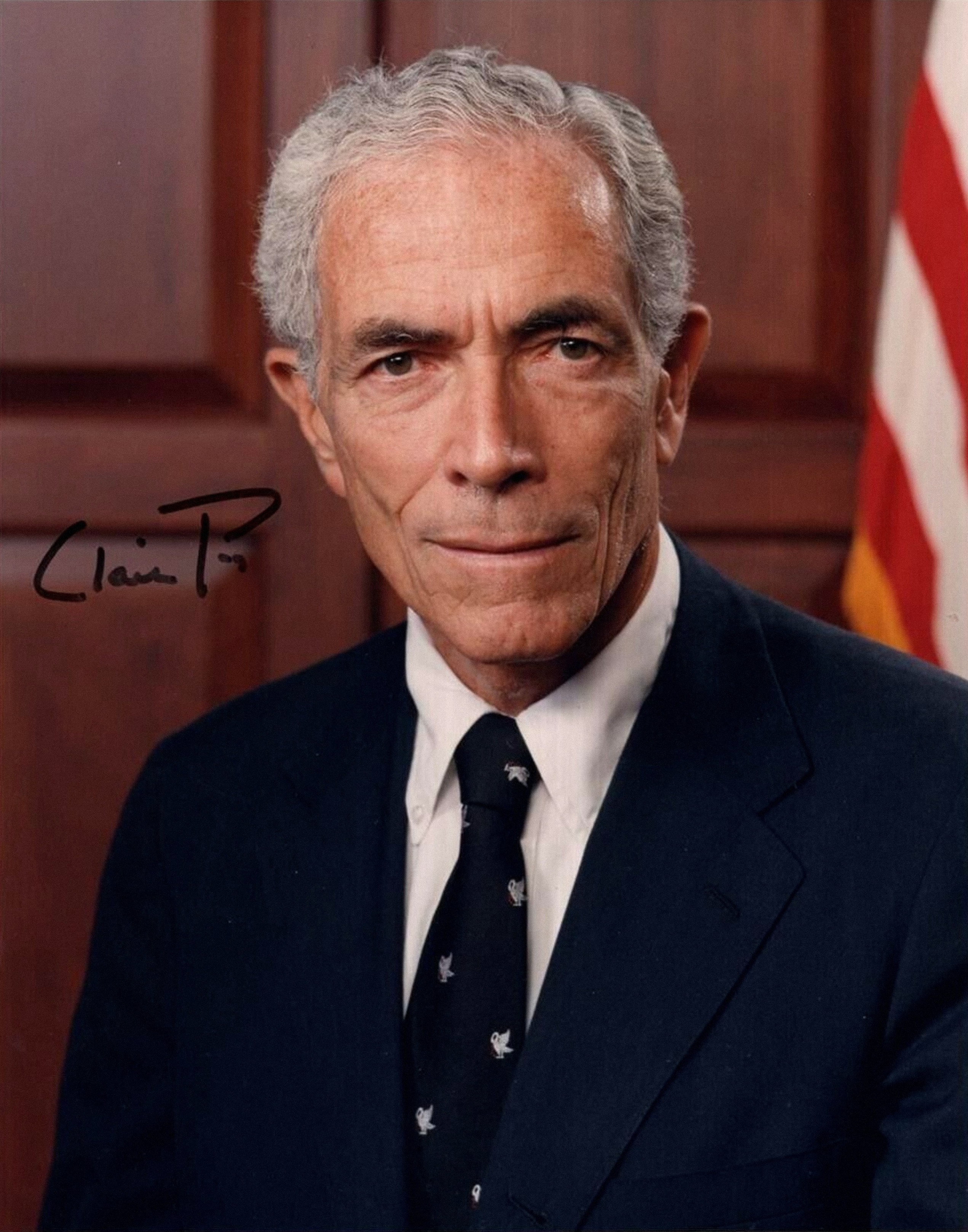 Democratic incumbent Claiborne Pell was reelected to a second term over Republican challenger Ruth M. Briggs.
Democratic incumbent Claiborne Pell was reelected to a second term over Republican challenger Ruth M. Briggs.
South Carolina
There were two elections, due to the death of Olin D. Johnston in 1965.South Carolina (regular)
Incumbent Strom Thurmond, who had switched parties from Democratic Party (United States), Democratic to Republican Party (United States), Republican in 1964, easily defeated South Carolina Senate, state senator Bradley Morrah in the general election. The two Democrats who could have defeated Thurmond competed against each other in the 1966 United States Senate special election in South Carolina, special election to serve the remaining two years of Olin D. Johnston's six-year term. As a result, little known South Carolina Senate, state senator Bradley Morrah of Greenville, South Carolina, Greenville won the South Carolina Democratic Party primary election on June 14 against John Bolt Culbertson to become the nominee in the general election. Senator Strom Thurmond faced no opposition from South Carolina Republican Party, South Carolina Republicans and avoided a primary election. Morrah faced an uphill struggle against Senator Thurmond because the Democratic resources were primarily poured into the special election to help Ernest Hollings, Fritz Hollings and in the 1966 South Carolina gubernatorial election, gubernatorial contest for Robert Evander McNair. Furthermore, Thurmond refused to debate Morrah and Thurmond boasted of the endorsements he received from Southern Democratic senators Richard Russell Jr., John C. Stennis, and Herman Talmadge. Morrah was easily dispatched by Thurmond in the general election and he also lost re-election to his state senate seat. He would never again hold public office, which was a routine occurrence for Thurmond's opponents.South Carolina (special)
The election resulted from the death of Senator Olin D. Johnston in 1965. Then-Governor of South Carolina, Governor Donald S. Russell entered in a prearranged agreement with Lieutenant Governor of South Carolina, Lieutenant Governor Robert Evander McNair in which Russell would resign his post so that he could be appointed Senator. However, former Governor Ernest Hollings, Fritz Hollings won the Democratic Party (United States), Democratic primary election and went on to beat Republican Party (United States), Republican South Carolina Senate, state senator Marshall Parker in the general election to fill the remaining two years of the unexpired term. In the 1962 South Carolina gubernatorial election, 1962 gubernatorial election, Donald S. Russell had stated that he would serve out a full term and not seek a higher office. However, midway through his term he resigned from the governorship so that he could be appointed to the United States Senate. Russell faced a challenge in the Democratic primary from former Governor Ernest Hollings, Fritz Hollings, who had lost to Olin D. Johnston in the 1962 United States Senate election in South Carolina, 1962 primary for the same Senate seat. On June 14, the South Carolina Democratic Party held their primary election and Hollings scored a comfortable victory over Russell to become the Democratic nominee. The South Carolina Republican Party was in the beginning stages of becoming a major political party in South Carolina politics. It had few elected officials in the state and when South Carolina Senate, state senator Marshall Parker from Oconee County, South Carolina, Oconee County sought the Republican nomination, he did not face any opposition. Parker faced an uphill battle in winning the Senate seat. First, the state was dominated by the Democratic Party and any Republican politician faced a tough time seeking election. However, there was hope for Republicans because Barry Goldwater had won the state in the 1964 United States presidential election, 1964 presidential election. Nevertheless, most of the resources of the Republican party were allocated for Strom Thurmond's re-election campaign and Joseph O. Rogers Jr., Joseph O. Rogers Jr.'s unsuccessful 1966 South Carolina gubernatorial election, gubernatorial election bid. In spite of these challenges, Parker was able to kept the race close and almost unseated Hollings in the general election. Hollings's first Senate victory was also his closest and he was easily re-elected in 1968 (full term), 1974, 1980, and 1986, with somewhat tougher races in 1992 and 1998, although neither with a margin as narrow as that of his initial election. He eventually became seventh longest-serving senator in history (just behind Robert Byrd, Thurmond, Ted Kennedy, Daniel Inouye, Carl Hayden and John C. Stennis). He and Thurmond were also the longest-serving Senate duo. Because of this, despite his length of service, Hollings spent 36 years as the junior Senator, even though - with his penultimate term - he had gained seniority of all but four of his colleagues - Byrd, Thurmond, Inouye and Kennedy. Hollings went on to become a nationally important political figure, e.g., serving as Chairman of the Budget committee.South Dakota
Incumbent Republican Karl Mundt was reelected to a fourth term over Democratic state legislator Donn Wright.Tennessee
Republican Party (United States), Republican Howard Baker won the U.S. Senate election in Tennessee, he defeated the Democratic Party (United States), Democratic nominee, Frank G. Clement.Texas
Incumbent Republican John Tower was reelected to a second term, defeating Democratic Attorney General of Texas, State Attorney General Waggoner Carr.Virginia
There were two elections, due to the resignation of Harry F. Byrd Sr. in 1965.Virginia (regular)
Democratic State Senator William B. Spong Jr. narrowly defeated incumbent A. Willis Robertson in the Democratic primary, than defeated Republican James P. Ould Jr. and Independent F. Lee Hawthorne.Virginia (special)
Incumbent Senator Harry F. Byrd Sr. had resigned the previous year due to health reasons, and his son Harry F. Byrd Jr. had been appointed to replace him. Byrd defeated Republican Lawrence M. Traylor and independent candidate John W. Carter, and was able to finish the rest of his father's term.West Virginia

Wyoming

See also
* 1966 United States elections ** 1966 United States gubernatorial elections ** 1966 United States House of Representatives elections * 89th United States Congress * 90th United States CongressNotes
References
Sources
Massachusetts Race details
at ourcampaigns.com * "Supplemental Report of the Secretary of State to the General Assembly of South Carolina." ''Reports and Resolutions of South Carolina to the General Assembly of the State of South Carolina''. Volume II. Columbia, SC: 1967, pp. 16, 41. * * "Supplemental Report of the Secretary of State to the General Assembly of South Carolina." ''Reports and Resolutions of South Carolina to the General Assembly of the State of South Carolina''. Volume II. Columbia, SC: 1967, pp. 16, 41. * {{1966 United States elections 1966 United States Senate elections,